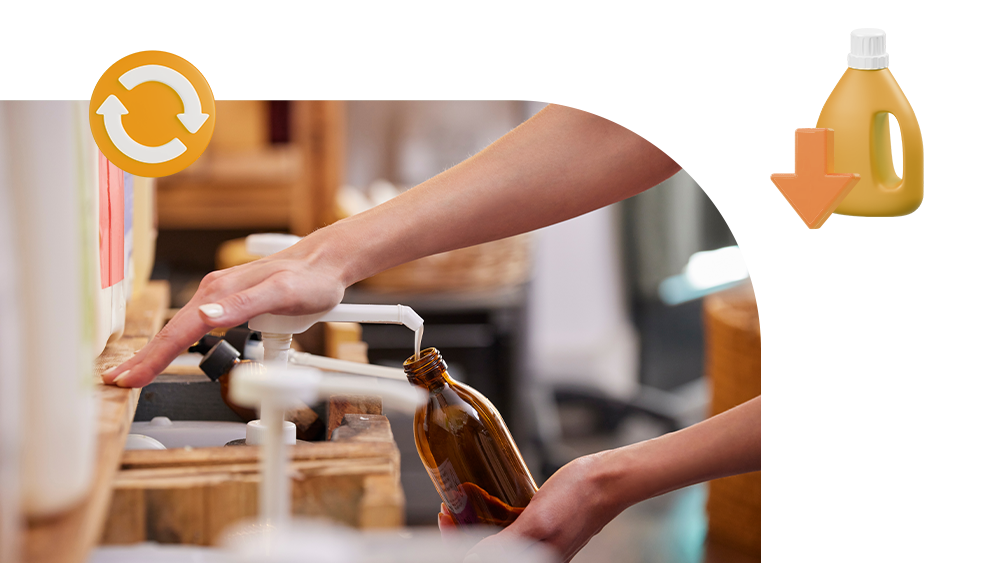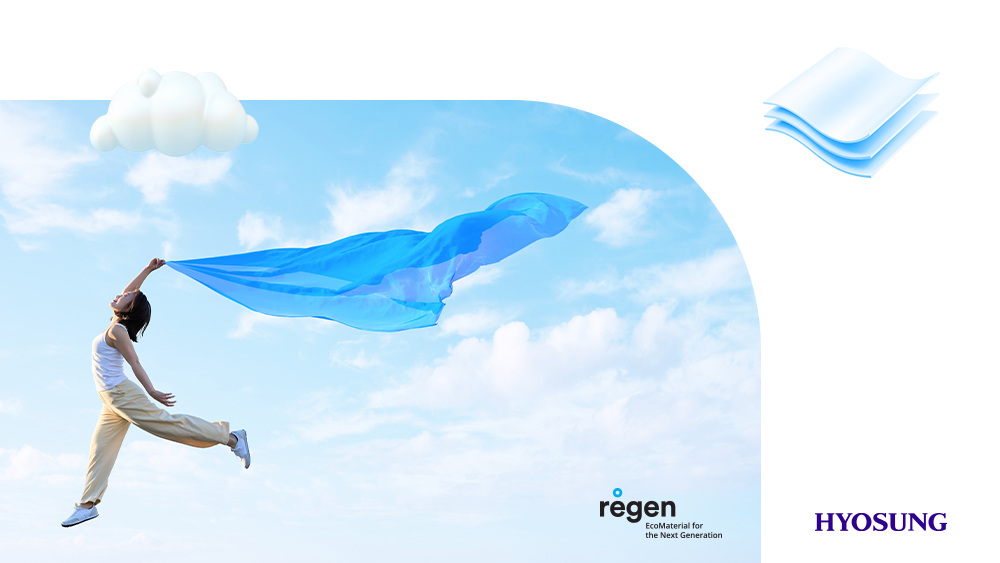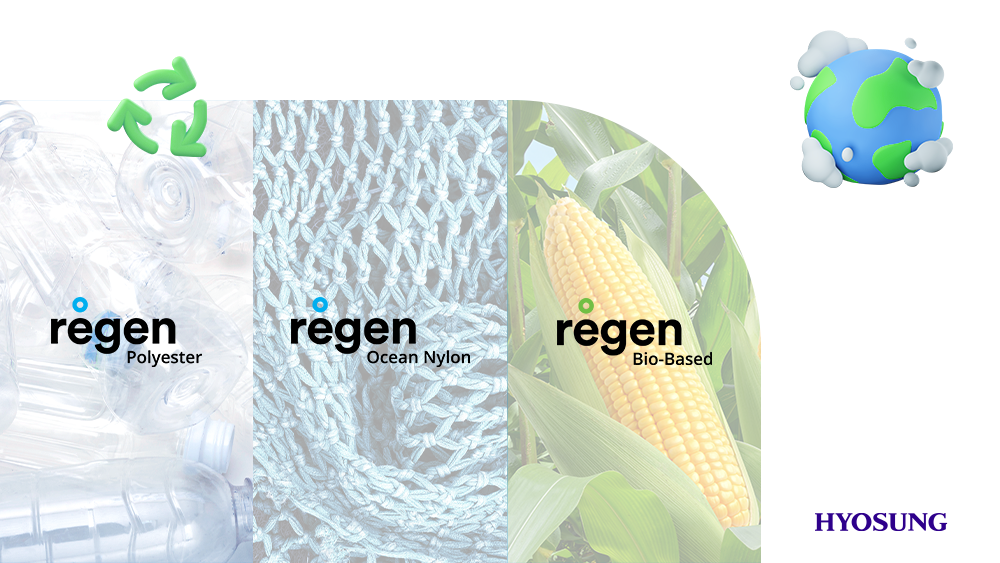Recent Consumption Trends and Hyosung
2023.06.09
All companies strive to cater to the interests and needs of their target customers, as well as stay up-to-date with the latest consumption trends. No matter how excellent the product or service may be, if it does not align with current consumer trends and fails to capture the attention of customers, it is difficult to succeed in the market. For this reason, all companies, regardless of size from small businesses to large corporations, are paying close attention to the dynamic consumer trends to capture the hearts of consumers. Several research agencies analyze and announce consumption trends every year.
Of course, Hyosung is not an exception. As a B2B company with a focus on corporate customers more than the general public, Hyosung does not frequently release new products as we require innovative technology. However, even for the innovative technology that Hyosung aims to develop and the products targeting corporations, we ultimately need to reflect consumer demands. Therefore, as a B2B company, Hyosung also needs to understand the latest consumption trends of consumers.
Standing at the center of sustainability, eco-friendliness, and global consumption trends
Sustainability and eco-friendliness are the main keywords of the global consumption trend that has persisted in recent years. As one of the solutions to mitigate global climate change, consumers are increasingly seeking products and services that are sustainable and environmentally friendly.
Sustainable and eco-friendly consumption is not difficult. Carrying a personal tumbler or using refill shops is one of the easiest and most sustainable ways to reduce the use of disposable items and plastics. Another way is to use recycled products based on Post-consumer Recycled (recycling of waste materials used and discarded by consumers) or Pre-consumer Recycled (recycling of industrial waste materials) methods, depending on the recycled materials and processes. Additionally, buying second hand items instead of new ones, or utilizing rental and sharing services to actively promote recycling and reduce waste disposal can also be sustainable and eco-friendly consumption practices that contribute to a circular economy.

Shifts in consumer awareness towards sustainable consumption.
According to PricewaterhouseCoopers (PwC), one of the world's top four accounting firms, only 35% of respondents in the Global Consumer Insights survey in 2019, prior to COVID-19 impacting our lives, indicated that they opt for sustainable products as a means to safeguard the environment, while 37% reported their experience of actively seeking environmentally friendly packaging. However, a joint study conducted in 2021 by Visual GPS, a creative research platform, and market research company YouGov, revealed that there has been a change in consumer behavior during the COVID-19 pandemic. 81% of respondents hope that companies consider the environment in their advertising and communication, and 69% said they are taking all measures to minimize their carbon footprint.
According to Mintel's "Global Consumer Trends Report 2023," a market research agency, consumers have become aware of the interconnectedness of the world due to recent events, and are increasingly concerned about the future and the environment that will be affected by their daily choices and habits. Mintel also predicted that factors such as sustainability will play an important role in consumers' value judgments.

Hyosung's sustainable and eco-friendly business for promoting consumers' green lifestyles
However, sustainability and eco-friendliness are not new to Hyosung. As a manufacturing-based company that takes environmental issues such as climate change, environmental pollution, and overflowing waste seriously, Hyosung has long been preparing and conducting environmentally friendly and sustainable businesses to address pollution and prepare for climate change.
The first step that environmentally conscious consumers can take towards sustainable consumption is to purchase eco-friendly products. Consumers tend to buy the most eco-friendly products that are reusable, such as tumblers and stainless-steel straws, and prefer products that are biodegradable, such as biodegradable plastic or paper packaging. They also show a high interest in upcycling products that use environmentally friendly materials or discarded products to reproduce. By consuming upcycling products, consumers not only reduce waste that pollutes the environment but also contribute to protecting the environment.
In 2008, Hyosung TNC developed and commercialized regen® Polyester, the first recycled polyester fiber in Korea made from discarded PET bottles. Since then, Hyosung TNC has introduced the regen lineup, which includes not only polyester but also nylon, spandex, and various functional fibers. Clothing and fashion items made from regen's recycled fibers are not only sold by global fashion brands and functional clothing brands but also chosen by consumers who seek both environmental protection and fashion.

Hyosung TNC produces yarns by utilizing waste products that consumers have used and discarded. "regen Polyester" is a yarn made from 100% discarded PET bottles, which is the first of its kind in Korea. The collected PET bottles are washed, crushed into flake form, melted again, and transformed into chips the size of rice grains, which are then used to reproduce yarn for clothing. By using regen Polyester, the amount of carbon dioxide emissions can be reduced by approximately 40% to 50% compared to regular yarn.
Furthermore, Hyosung TNC has developed the world's first recycled fiber, "regen Ocean Nylon," by utilizing discarded fishing nets from the ocean. According to LCA (Life Cycle Assessment) measurements, regen Ocean Nylon can reduce carbon dioxide emissions by 73% compared to conventional nylon, reduce fossil fuel consumption by 75.7%, and reduce water consumption by a massive 98.6%.
Moreover, after conducting extensive research and development, Hyosung TNC has successfully commercialized "regen Bio-Based," the world's first yarn made from bio materials extracted from corn. regen Bio-Based has been recognized for its use of eco-friendly raw materials, its harmlessness to the human body, and its environmentally friendly production process through ESG management, and has obtained the "Eco Product Mark." When applied to products, this yarn can reduce water consumption by 39% and carbon dioxide emissions by 23% compared to conventional spandex. Hyosung has created an environmentally friendly yarn by recycling discarded waste products or using synthetic fibers made from natural materials, making it an ideal choice for customers who prioritize sustainable consumption.
Prepared Hyosung, Prepared Future
Since 2012, Hyosung has been publishing sustainability reports and is committed to playing a role as a global player for the environment by improving the lives of all humanity, not just the success of its business.
Hyosung's various eco-friendly businesses have been made possible thanks to its accumulated technological capabilities and efforts toward a better future. Hyosung's unique technological DNA and continuous efforts to create a better living environment for tomorrow are embedded in the global trend of emphasizing sustainability.
Hyosung's commitment to sustainability and eco-friendliness is clearly apparent and recognizable to consumers who prioritize eco-friendly and sustainable consumption.